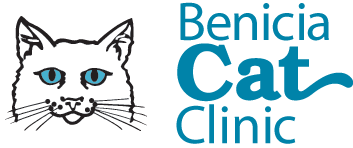Educational Articles
-
This handout summarizes breeding and queening (giving birth) in cats and the normal estrus (heat cycle). Pregnancy care and labor care are outlined, along with signs to watch for to determine if your cat is experiencing delivery complications.
-
A cesarean section is a surgery to remove kittens from the uterus and is most commonly performed as an emergency procedure when there is difficulty with natural birth. During the immediate recovery period, the mother and kittens must be closely monitored and begin eating/nursing within a few hours. If you have any concerns about their health, you should immediately have your veterinarian examine the kittens and their mother.
-
Chediak-Higashi Syndrome is a rare genetic disease of smoke-blue Persian cats. The condition affects how the body processes waste products, resulting in changes within the body’s cells and leading to abnormal pigmentation of the skin and coat. The condition can lead to eye abnormalities and problems with blood clotting, but most cats can have a normal lifespan with careful health monitoring.
-
Eclampsia in cats is a rare emergent condition of hypocalcemia that generally occurs one to four weeks after giving birth but can occur before. Risk factors include a poor diet, abnormal parathyroid gland, and calcium supplementation during pregnancy. Signs of eclampsia start as restlessness, panting, and stiffness and can progress to disorientation, tremors, inability to walk, and convulsions. Treatment includes intravenous fluids, careful intravenous calcium supplementation, and other supportive medications followed by oral supplementation and weaning kittens as soon as possible or supplementing their diet with milk replacer.
-
The estrous cycle, better known as a female cat's heat cycle, consists of several stages; the stage called estrus refers to when the female is sexually receptive. This handout explains the age of onset, the clinical signs of a cat in heat, the length and phases of the heat cycle, as well as the benefits of spaying a female before her first heat cycle.
-
This handout discusses the need for ensuring your pregnant cat is receiving adequate nutrition to make sure both she and her kittens thrive during this time of increased demands on her body. Feeding and diet suggestions are provided.
-
Special attention needs to be given to a cat’s nutrition before and during her pregnancy to promote a healthy birth and healthy kittens. It is important to maintain a good body condition throughout pregnancy as her weight increases. A good quality kitten or all life stages diet is recommended during the entire pregnancy; ideally one evaluated using feeding trials. This diet is usually fed throughout the lactation period, but attention to body condition is essential here as well, and the diet may need to be restricted if there is a small number of kittens or the cat starts becoming overweight. Weaning is usually aided by feeding significantly less food for a few days while restricting access to nursing to decrease milk production.
-
Infertility in a queen (an intact female cat) is defined as the inability to give birth to live kittens, despite appropriate breeding with a fertile male. This handout provides an outline of common causes of infertility along with how they are diagnosed and, when possible, treated.
-
Male infertility refers to the inability of a sexually mature tomcat (intact male cat) to impregnate a fertile female. This handout explains the possible causes of infertility in male cats as well as how they may be diagnosed and, when possible, treated.
-
Mastitis is a term used to describe inflammation of a mammary gland (breast), most frequently seen in the postpartum period after a cat gives birth. In most cases, mastitis is caused by a bacterial infection. Trauma to the nipple or teat canal can allow bacteria to enter, traveling up into the mammary gland and creating a bacterial infection. Most cats with mastitis can be treated on an outpatient basis with oral antibiotics and pain medications, though severe cases may require hospitalization or surgery.

